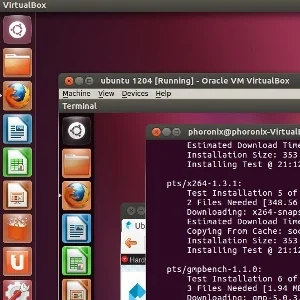NVMe VFIO Mediated Device Support Being Hacked On For Lower Latency Storage In VMs

Levitsky is pursuing faster virtualization of storage while striving for low latency and that led to the creation of a VFIO-based mediated device driver to pass an NVMe partition or namespace to a guest. This NVMe VFIO mediated device support would allow virtualized guests to run their unmodified/standard NVMe device drivers, including the Windows drivers, while still allowing the NVMe device to be shared between the host and guest.
This "NVME-MDEV" code also has some performance advantages in light of Meltdown mitigations as this in-kernel driver can send interrupts to the guest directly without the need for a context switch. At this point though this NVMe-MDEV code is still considered a proof of concept but will be interesting to see the performance numbers and possibilities once the code has matured and is vetted for hopefully inclusion into the mainline Linux kernel.
More details with the RFC patch series.
4 Comments

